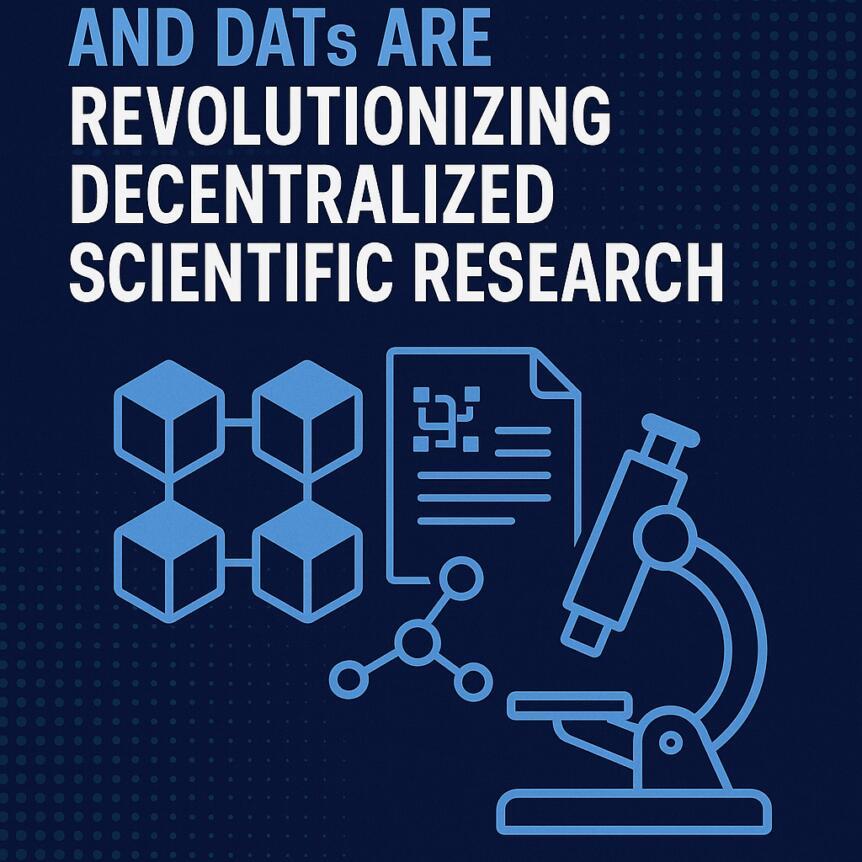Science
Blockchain and Crypto Transform Biomedical Research Funding

Startups and established companies in the biomedical field are increasingly adopting blockchain and cryptocurrency strategies to transform how scientific research is funded. This shift aims to eliminate traditional funding barriers, accelerate breakthroughs in healthcare, and introduce innovative financial models such as tokenization and prediction markets.
Innovative Funding Models Emerge
Biomedical companies are turning to blockchain-based funding mechanisms to support research initiatives. One notable example is Portage Biotech, which became a treasury holder of Toncoin in September 2023. The company generates revenue through network staking and investments in projects associated with the Telegram ecosystem. A portion of these earnings will be specifically allocated for cancer research. Brittany Kaiser, CEO of AlphaTON, emphasized the potential of real-world asset tokenization as a new financing method for scientific ventures.
Kaiser and Anthony Scaramucci, a strategic advisor to AlphaTON, highlighted that integrating operational businesses within the crypto space distinguishes their approach from traditional crypto treasuries, which often lack tangible assets. Scaramucci remarked, “Most crypto treasuries eliminate the core business assets, but this model preserves valuable assets in the shell, creating new opportunities for innovation.”
Decentralized Science and Prediction Markets
Another innovative initiative is being led by Ideosphere, a decentralized science startup focused on funding early-stage research through prediction markets. These platforms allow for crowdsourced speculation on research hypotheses, enabling researchers to validate or challenge their ideas based on market activity. Co-founder Rei Jarram stated, “Prediction markets around early research hypotheses can foster innovative ideas and bring funding directly from interested stakeholders.”
In a significant development, Bio Protocol announced a funding round of $6.9 million in September 2023, led by Animoca Brands and the Maelstrom fund. The platform aims to create an AI-native marketplace for biotech research and drug discovery financing. Arthur Hayes, founder of Maelstrom, expressed optimism about Bio Protocol’s potential, stating, “Bio Protocol has the capacity to become a full-fledged AI-driven research market, fundamentally changing how biotech innovation is funded and executed.”
This trend of integrating blockchain technologies with scientific funding reflects a growing ambition to enhance the efficiency of securing investments for research, particularly in critical areas like cancer treatment and drug development. As the biomedical sector continues to evolve, the combination of cryptocurrency strategies and scientific inquiry may unlock new avenues for innovation and funding efficiency.
Investors should remain cautious, as crypto assets are known for their volatility. The potential for significant returns comes with an inherent risk, emphasizing the importance of thorough research and understanding before committing capital.
This wave of innovation in the biomedical sector showcases the transformative power of technology in enhancing research funding processes. As more organizations embrace these changes, the future of scientific research funding looks set to be more decentralized and accessible than ever before.
-

 Top Stories2 months ago
Top Stories2 months agoTributes Surge for 9-Year-Old Leon Briody After Cancer Battle
-

 Entertainment4 months ago
Entertainment4 months agoAimee Osbourne Joins Family for Emotional Tribute to Ozzy
-

 Politics4 months ago
Politics4 months agoDanny Healy-Rae Considers Complaint After Altercation with Garda
-

 Top Stories3 months ago
Top Stories3 months agoIreland Enjoys Summer Heat as Hurricane Erin Approaches Atlantic
-

 World4 months ago
World4 months agoHawaii Commemorates 80 Years Since Hiroshima Bombing with Ceremony
-

 Top Stories2 months ago
Top Stories2 months agoNewcastle West Woman Patricia Foley Found Safe After Urgent Search
-

 Top Stories4 months ago
Top Stories4 months agoFianna Fáil TDs Urgently Consider Maire Geoghegan-Quinn for Presidency
-

 World4 months ago
World4 months agoGaza Aid Distribution Tragedy: 20 Killed Amid Ongoing Violence
-

 World4 months ago
World4 months agoCouple Convicted of Murdering Two-Year-Old Grandson in Wales
-

 World4 months ago
World4 months agoAristocrat Constance Marten and Partner Convicted of Infant Murder
-

 Top Stories3 months ago
Top Stories3 months agoClimbing Errigal: A Must-Do Summer Adventure in Donegal
-

 Top Stories3 months ago
Top Stories3 months agoHike Donegal’s Errigal Mountain NOW for Unforgettable Summer Views









